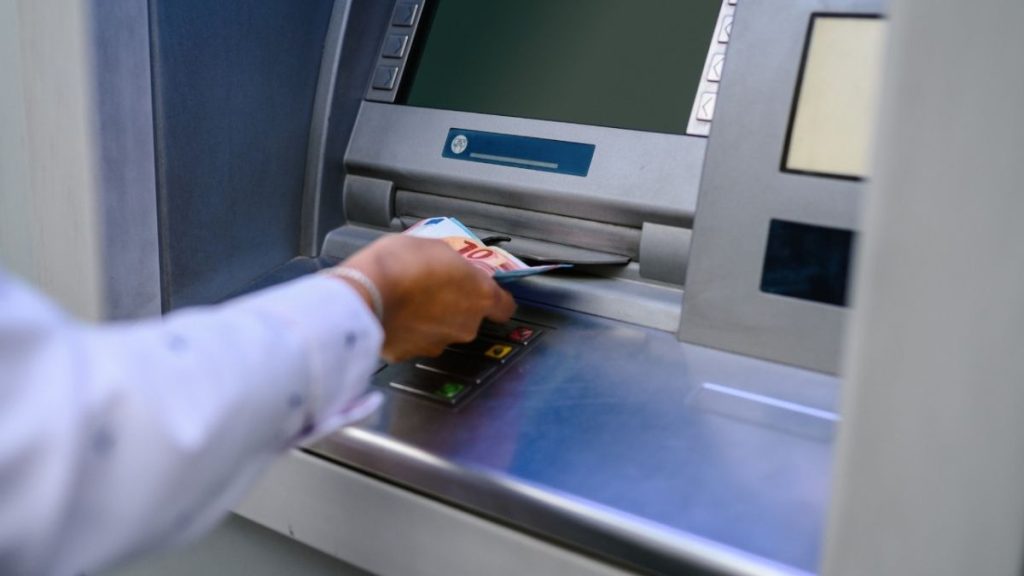The UK banking sector is preparing to introduce a major change affecting millions of pensioners and retirees. Starting 29 September 2025, new cash withdrawal rules will come into effect for customers aged 65 and above.
Under these rules, banks will set lower cash limits, tighten identity verification, and enhance fraud-prevention measures. While the move aims to protect seniors from scams and financial abuse, it also marks a significant shift in how older Britons access their money.
Here’s everything you need to know about the 2025 banking rule changes, how they’ll work, and what steps you can take to stay prepared.
Why Banks Are Introducing New Limits
Over the past few years, banks and law enforcement agencies have reported a sharp increase in scams targeting older people. Criminals often pressure victims to make large withdrawals or transfers, posing as relatives, police officers, or bank employees.
According to industry data, fraud cases involving seniors have surged, costing UK pensioners tens of millions of pounds annually.
In response, the government urged banks to implement age-specific protections. The new rules are designed not to restrict access, but to verify authorisation and stop suspicious transactions before money leaves an account.
Banks emphasise that customers will still have full access to their funds — but with added safety layers designed to prevent exploitation.
What the New Withdrawal Limits Mean
The most noticeable change for older customers will be reduced cash limits.
Daily and Weekly Caps
Under the new framework, most banks will introduce daily withdrawal limits between £500 and £1,500, depending on the institution. Some may also apply weekly or monthly cumulative caps to track total withdrawals.
Why It Matters
If you typically withdraw larger sums — for example, to pay tradespeople, help family members, or cover care costs — you may need to notify your bank in advance or request an exemption.
The limits will apply to both ATM withdrawals and in-branch transactions, ensuring uniform safeguards across all access points.
Banks say these measures are designed to balance convenience with security, especially as fraudsters continue to target older clients.
Extra ID Checks and Verification Calls
Another key change involves enhanced identity verification for certain transactions.
New Verification Process
If you are over 65 and attempt to withdraw an unusually large amount, your bank may:
- Request photo identification (such as a passport or driving licence).
- Ask for additional PIN or security code confirmation.
- Conduct a verification call before approving the withdrawal.
The goal is to ensure the withdrawal is authorised by you and not a scammer pretending to act on your behalf.
Some banks will also introduce real-time monitoring systems that flag unusual cash behaviour, prompting a staff member to check with you directly.
While this may seem inconvenient, these measures are part of a nationwide fraud-prevention initiative designed to protect vulnerable customers.
How the Changes Affect Everyday Banking
For many pensioners, especially those who prefer cash budgeting, these new limits will require some adjustment.
If you normally withdraw your monthly pension in one go to cover rent, groceries, or community payments, you might now have to make smaller, more frequent withdrawals.
To support this transition, several major banks — including Lloyds, Barclays, HSBC, and NatWest — are planning to offer:
- Customer workshops explaining the new rules.
- Telephone guidance lines for seniors.
- Help with setting up alternative payment methods, such as direct debits or secure online transfers.
Planning ahead and spreading withdrawals over multiple days can help you stay organised and avoid payment delays.
How Pension Payments Are Affected
It’s important to note that pension deposits will not change under the new rules.
Both State Pension and private pension payments will continue to be deposited directly into your account on the usual schedule.
The only difference lies in how much cash you can withdraw at once.
However, because many older Britons still rely heavily on cash to manage household expenses, the impact may feel more significant than for younger, digitally-oriented customers. Understanding that income deposits remain unaffected can help you separate normal pension activity from withdrawal restrictions.
How to Request Higher Cash Limits
Banks recognise that some customers genuinely need to withdraw more than the default limits allow.
Requesting an Exemption
If you need to access larger sums for legitimate reasons — such as home repairs, medical treatments, or family events — you can apply for a temporary or permanent higher limit.
You’ll likely need to:
- Visit your local branch in person.
- Provide evidence of the expense, such as invoices or receipts.
- Submit identification and possibly fill out a short form.
Support for Vulnerable Customers
Banks may also allow you to add a trusted financial representative — for example, a power of attorney holder or financial guardian — to assist with complex transactions.
These safeguards ensure access remains flexible while reducing fraud risk
Protecting Yourself from Scams
The 2025 reforms are part of a wider campaign to combat the growing epidemic of financial scams.
Fraudsters often target older people with convincing phone calls, texts, or emails, urging them to withdraw or transfer money urgently.
Common Scam Tactics
- Pretending to be from your bank, the police, or HMRC.
- Claiming your account has been “compromised”.
- Asking you to withdraw cash and hand it to a “courier” for safekeeping.
What Banks Are Doing
Under the new framework, banks will flag and pause suspicious withdrawals, giving customers more time to confirm legitimacy.
They are also introducing real-time fraud alerts via text, email, or app notification, warning customers about any irregular activity.
What You Can Do
- Never share your PIN, passwords, or one-time codes with anyone.
- Always call your bank directly using the official number on your card or statement.
- Report suspicious calls immediately to Action Fraud or your local police.
These simple steps can protect you from becoming a victim of financial crime.
Alternatives to Cash Withdrawals
If you find the new limits restrictive, banks encourage exploring secure digital payment options that offer convenience and safety.
Recommended Alternatives
- Direct Debits or Standing Orders – Ideal for recurring bills like utilities or rent.
- Contactless Card Payments – Safe and widely accepted across shops and service providers.
- Bank Transfers (Faster Payments) – Useful for one-off payments to family or service providers.
- Companion or Prepaid Cards – Allow carers or relatives to spend on your behalf safely, without granting full account access.
Using these options can reduce the need to carry large sums of cash and minimise theft risk.
Preparing Before September 29, 2025
With the implementation date approaching, it’s wise to take action early.
Steps to Get Ready
- Review your current banking habits. Make a note of your average withdrawal amounts.
- Speak to your bank about any regular high-value cash needs.
- Update your identification documents, such as passport or driver’s licence, to ensure they’re valid for verification.
- Register for text or email alerts to stay informed of transactions and new security policies.
- Attend bank-run information sessions to learn about the new procedures.
By preparing ahead of time, you can avoid delays and ensure a smooth transition once the new rules are enforced.
Key Takeaways for Pensioners
- The new cash withdrawal rules for over-65s take effect on 29 September 2025.
- Daily withdrawal limits will range between £500 and £1,500, depending on the bank.
- Extra ID verification and confirmation calls will be required for larger transactions.
- Pension payments remain unaffected — only cash access limits are changing.
- Customers can request higher limits if they can demonstrate a legitimate need.
- The goal is fraud prevention, not restriction.
By staying informed and planning ahead, pensioners can continue to manage their finances safely and independently.
What the Banking Industry Says
Banking industry bodies, including UK Finance, have welcomed the policy, calling it “a vital safeguard for vulnerable customers.”
A UK Finance spokesperson said:
“These measures are designed to give older customers the best of both worlds — continued access to cash, but with modern protections against fraud. The changes reflect how seriously banks take their duty of care to older clients.”
Meanwhile, consumer watchdogs have urged banks to ensure the process remains “simple, supportive, and free from unnecessary barriers” for elderly customers who rely on in-person services.
Looking Ahead: Will More Age-Based Banking Rules Follow?
Experts believe the 2025 cash withdrawal reform could pave the way for broader age-specific banking policies, including:
- Enhanced account monitoring for vulnerable customers.
- Simplified fraud reporting channels for seniors.
- Expanded access to face-to-face banking in rural communities.
As the UK moves further into the digital banking era, regulators are striving to maintain a balance between technology adoption and accessibility for older citizens.
FAQs on UK Banks’ New Cash Withdrawal Rules (2025)
1. When do the new cash withdrawal limits start?
The new rules come into effect on 29 September 2025 for all customers aged 65 and above.
2. How much can pensioners withdraw daily under the new system?
The daily limit will vary by bank, typically ranging from £500 to £1,500. Some banks may also enforce monthly caps.
3. Will my pension or benefit payments be affected?
No. These changes only impact cash withdrawals, not deposits such as State Pension or private pension payments.
4. Can I increase my withdrawal limit?
Yes. You can request a temporary or permanent limit increase by providing proof of your need to your bank.
5. How can I protect myself from scams under the new system?
Stay alert for suspicious calls or emails, never share your PIN, and use official bank contact numbers to verify requests.























